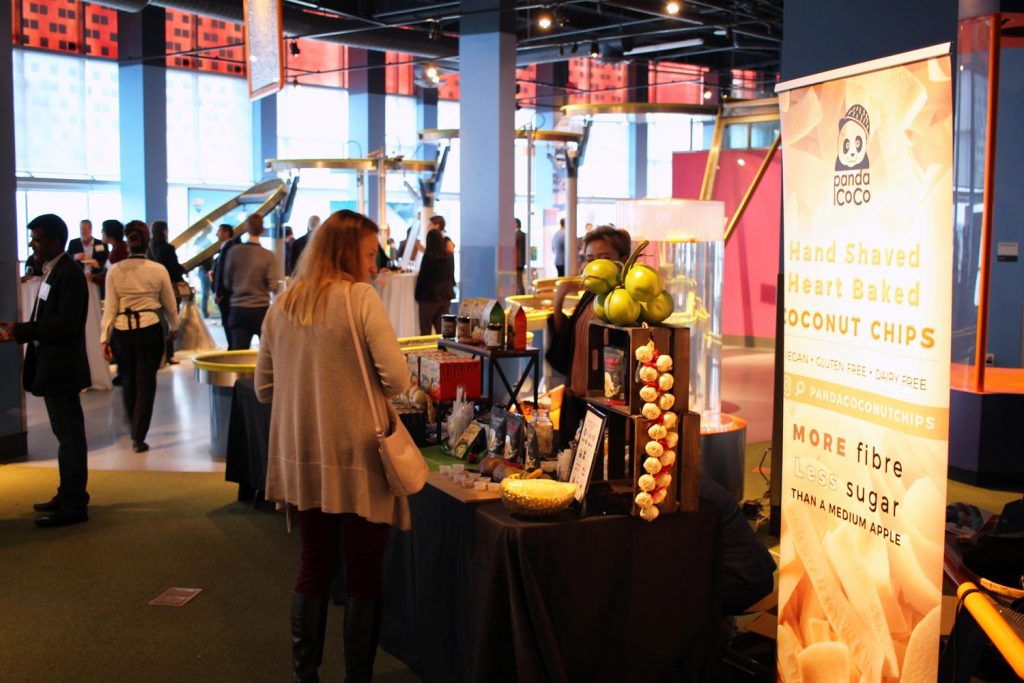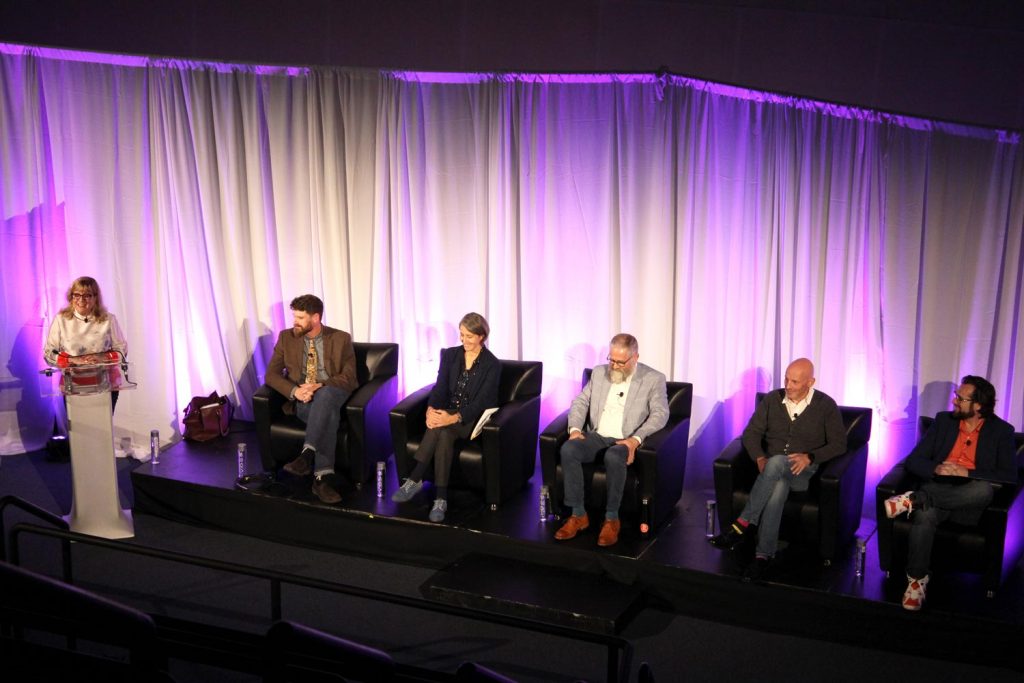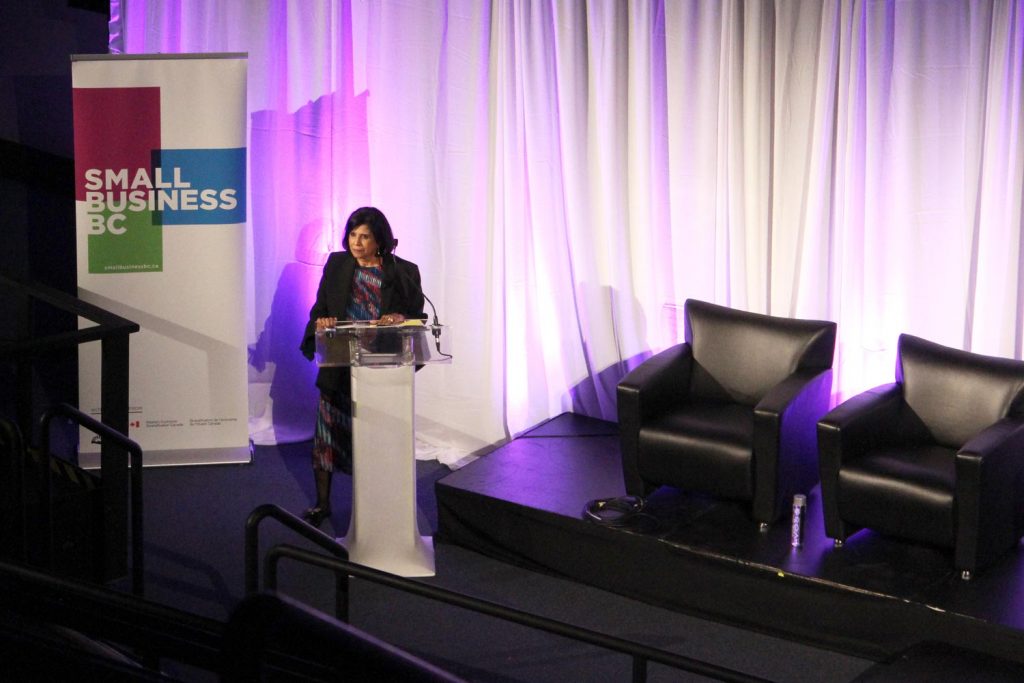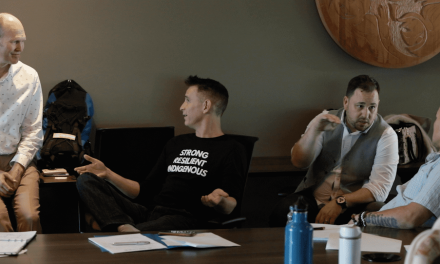Every year, Small Business BC hosts an event for over 400 local entrepreneurs to come together, network, learn and discuss pressing topics. This year’s focus was social enterprises and it was an experience to remember.

I arrived with very few expectations being my first year attending and was blown away by the overall atmosphere and the quality of the event. Located at the easy-to-find Science World, it was a unique venue with not only plenty of space, but an overall feeling of exploration, wonder, and the possibility that is core to Science World.
The evening consisted of networking, food, drinks, a panel of social entrepreneurs, and a keynote presentation all centered around social enterprises.


Immediately following the networking hour, everyone made their way to the IMAX theatre where a panel of 5 inspiring entrepreneurs was ready to discuss social impact in business today:
- Brian Smith, CEO – Persephone Brewing Co.
- Denise Taschereau, Co-Founder and CEO – Fairware
- Mickey McLeod, Co-Founder, President and CEO – Salt Spring Coffee
- Peter Van Stolk, CEO – SPUD
- Mike filling in for Janice Taylor of MAZU
In addition, Ratana Stephens, Co-Founder and Co-CEO of Nature’s Path Foods gave a wonderful keynote speech about the power of a triple bottom line, and the way Nature’s Path, and any business can have an exponentially bigger impact.
While there were so many great ideas and discussion topics, two takeaways really stood out:
1. Values Come Before the Business
When asked how they got started building a social enterprise and whether the business came first, Mickey McLeod definitively answered, “the values came before the business”. This was echoed by almost everyone else on the panel. The way a social business is successful is by having the core beliefs, the absolute heart of everything, deeply rooted in the values from the very beginning.

This means that the values also need to come from the top. When you’re just starting with a small team it’s easier to cohesively buy-in to the values, scaling with that mindset is the challenge, and all of these entrepreneurs have done it.
This is in contrast to what was later referred to as “social washing” by Peter Van Stolk, in which some businesses try to put on the facade of caring about a cause. Real social focus organically comes from within and shows in every aspect of business. Brian Smith’s example of a “standing meeting item” in which they talk about how they can get more involved with their partner nonprofit is proof of a business living out its core values in the day-to-day.
2. Businesses Have a Responsibility
To paraphrase Peter, it’s not just a nice to have, businesses have a responsibility to think about their impact, particularly in industries where a significant negative impact is known. “SPUD is able to produce only 0.5% waste on their food,” Peter described when comparing their business to the 10-times larger waste percentage produced from Walmart.
It might not be the easiest method, but it is our responsibility, not just a luxury to ensure we’re constantly striving for better ways of manufacturing, delivering and running businesses.
Later in the evening, Ratana Stephens spoke about Nature’s Path’s mission (and her personal mission) “to leave the world a better place than when we found it”. This struck a chord because it sat in harmony with the idea of social responsibility, but to an even greater degree.

We’re at a point where we not only need to take responsibility for the harm we are doing to our planet on a regular basis but to strive to correct the damage. Through decades, if not centuries, of poor agricultural practices, manufacturing, food consumption and millions of other aspects, we need to not only stop digging ourselves deeper but actually start reversing the process. Easier said than done, but Nature’s Path is well on its way.
Thank you Small Business BC for a wonderful event, check out their website for more information on how to get involved next year!











